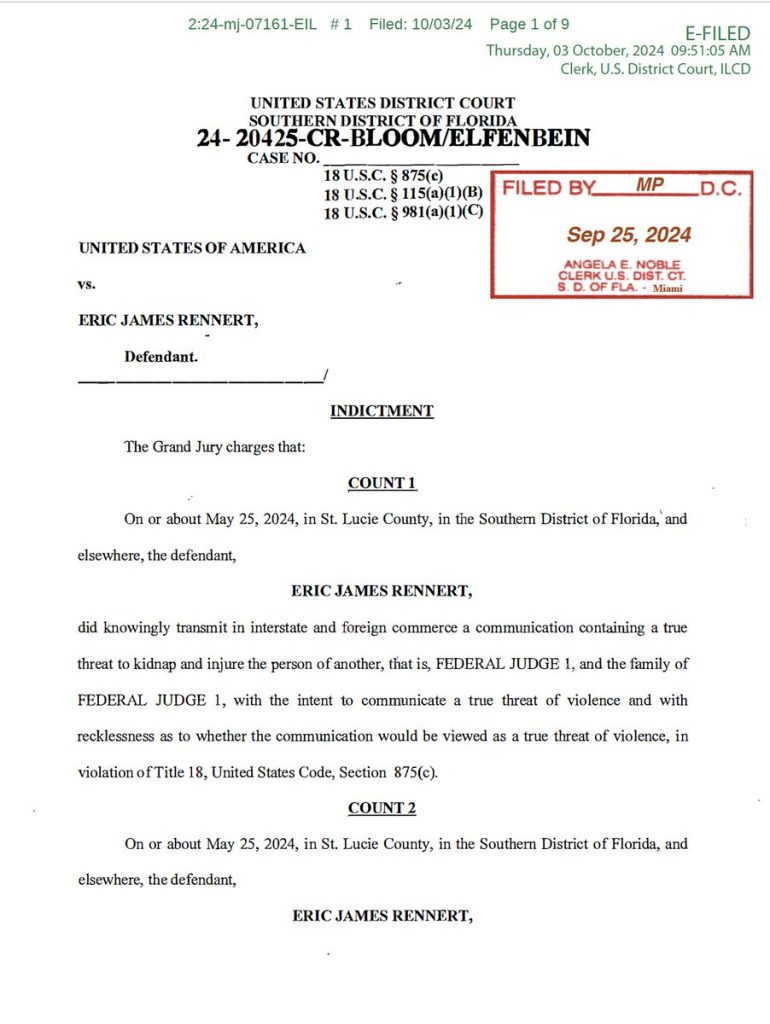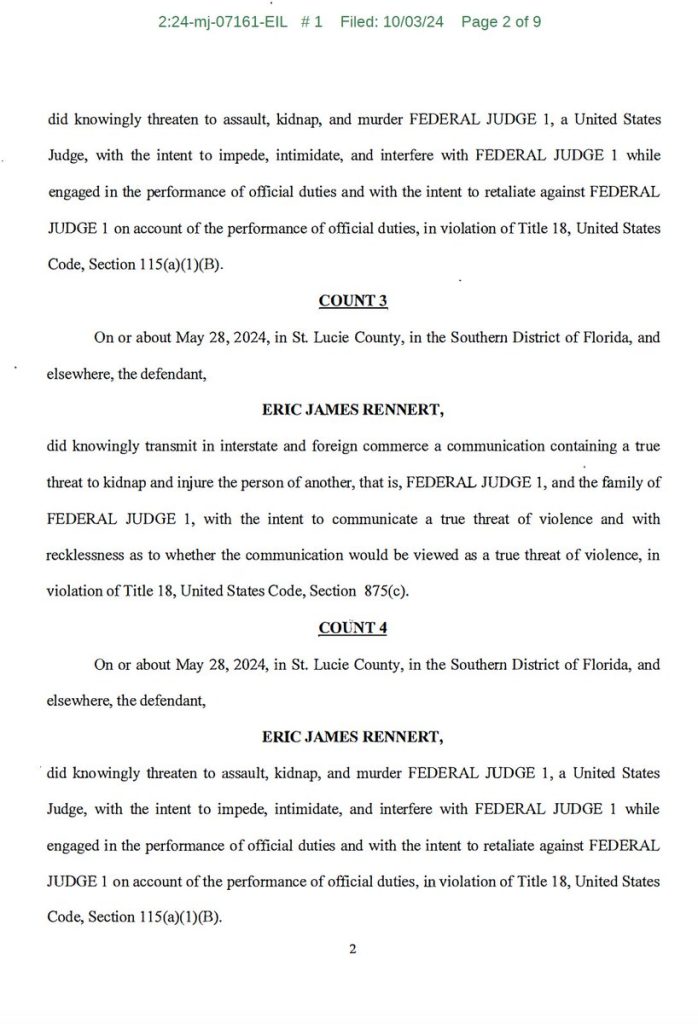An Illinois man has been arrested for allegedly threatening to kidnap and kill U.S. District Judge Aileen Cannon. She is a Trump appointee who dismissed the Biden DOJ’s case about classified documents against Trump, which makes this situation even more concerning.
The Arrest of Eric James Rennert
Eric James Rennert, 65, faces five federal charges for these threats. He targeted Judge Cannon while she was overseeing the trial of Ryan Routh, a man accused of attempting to assassinate Trump. The indictment did not name her directly but confirmed that the threats were made in St. Lucie County, Florida—where Cannon lives and works.
It’s worth noting that only one other judge operates out of the Fort Pierce courthouse where she presides. This led many to speculate that Cannon was indeed the target of these alarming threats.
The Nature of the Threats
Reports indicate that Rennert made threats on three separate occasions in May and July as retaliation against Judge Cannon for her “performance of official duties.” He appeared in federal court in Urbana, Illinois on Thursday, where he was ordered to be held without bail until his upcoming detention hearing in Florida.


Cannon’s Role in Trump’s Case
Judge Cannon recently dismissed charges against former President Trump related to mishandling classified documents. Interestingly enough, while Trump faced legal trouble from the Biden administration over this issue, it turned out that President Biden himself had left classified documents scattered across various locations—including an office building in Philadelphia and his garage in Wilmington.
A special counsel investigation decided not to charge Biden due to concerns about his mental fitness for trial; Special Counsel Robert Hur believed a jury would struggle to convict him given signs of cognitive decline.
Cannon’s Constitutional Ruling
Cannon ruled that Attorney General Merrick Garland’s appointment of special prosecutor Jack Smith violated constitutional precedent. In her ruling, she stated:
“The relevant history… shows that Congress tacitly authorized—or silently acquiesced—to use Section 515 (or its predecessor statutes)…”
This means she found no authority granted by law for such appointments by the Attorney General—a significant point considering how often we hear about government overreach these days!
The Ongoing Appeal
Smith is currently appealing Judge Cannon’s decision regarding his appointment as special prosecutor. This ongoing battle highlights just how contentious our political landscape has become under this administration.


Leave a Comment